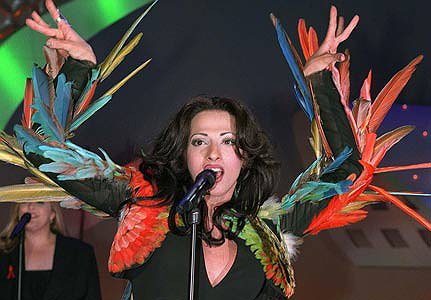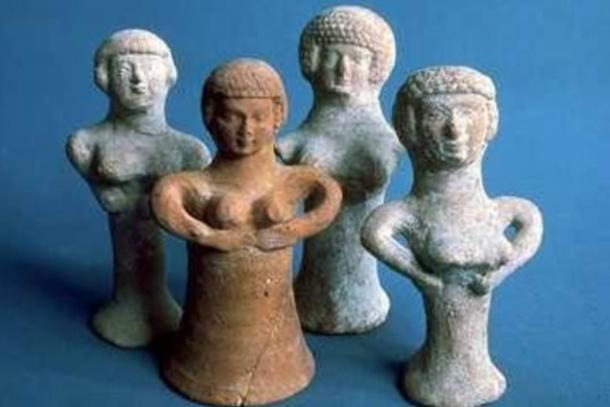1998 is imprinted in my mind as a critical turning point in Jewish history.
Those who remember it are already nodding sagely in recollection of this key moment of reconciliation between Jews and others. It opened up the Jewish community to being more accepting of difference and showed that Jews had been visibly and publicly embraced.
It was, of course, the year Dana International won the Eurovision Song Contest. Like many families across Europe, mine stayed up late watching the results come in. They were as expected – Dana had stormed the public vote.
Dana. Jewish. Yemeni. Israeli. Glamorous. Melodious. Trans.
Dana was a trans woman who had already made her name in the underground gay clubs of the Mediterannean and the Middle East. In some places, her albums had been sold illegally and discreetly.
At that time, trans people had no legal protections in any country. In popular media, they were exclusively the butt of jokes or objects of fear. There were very few public pundits who were trans or even willing to advance their cause.
But now, all of a sudden, she burst onto television screens to accolades, as if the world might finally be ready for latent queer liberation. Her victory wasn’t just a win for a pop star; it was a statement about what could be.
For me, it was mostly a watershed moment in Jewish history because it transformed the communal discussion about LGBT acceptance. British Jews celebrated Dana’s win as a win for Jews and a sign of our integration in Europe. At Purim that year, aged 10, I dressed up as Dana and danced around on the bimah.
This snapshot in LGBT Jewish history stands in sharp contrast to this week’s Torah portion. Here, we read: “A woman must not wear men’s clothing, nor a man wear women’s clothing, for the Eternal One your God detests anyone who does this.” This has become known as one of the ‘clobber verses’ – words from Torah quoted at lesbian, gay, bi and trans people to oppress them.
In the Talmud, Rabbi Eliezer ben Yaakov warns that men will dress up as women in order to sneak into their private women-only spaces. This is precisely the argument used today to exclude trans women, presenting them as sexual predators and imposters.
If anything, today’s discourse is far worse, since the Gemara ultimately rejects this argument, but such bigotry is often allowed to stand unchallenged in our newspapers, radio call-ins and TV debates. In fact, in the last few weeks, Members of Parliament, the Archbishop of Canterbury, Piers Morgan, JK Rowling and a number of other high profile figures have banded together to criticise what they term ‘transgender ideology.’
Defendants of trans women have spoken up to insist that they are not ‘men masquerading as women,’ but simply people seeking to live their own authentic lives.
I think, however, this defence is too constricting. There is nothing wrong with men dressing as women or women dressing as men. One of the strongest messages of the trans movement has been that gender need not be a prison. I personally have built on my childhood success imitating Dana by dressing up as Amy Winehouse and Lily Montagu for the last two Purims.
Trans people belong to a broad spectrum of people who don’t feel like their gender identity matches with what society assigned them at birth. They have diverse ideas about who they are, but shared experiences of people trying to force them to conform to a mould they do not fit.
I hope that by promoting those who do not fit the mould we can reconsider the mould altogether. There are so many ways to be a man, to be a woman, and to sit in the spaces in between.
Our communities should be strong enough to include everyone, regardless of gender presentation and identity. We should be able to accept and celebrate the myriad of gender variance today, as we did for Dana twenty years ago.
It is disappointing that what, in the late nineties, seemed like the inevitable advancement of trans rights, is now being pushed back by a toxic alliance. While other parts of society can have their own arguments, I feel it is important that Progressive Jews position ourselves firmly on the side of inclusion.
Thankfully, I am not alone. Last month, Reform Judaism’s outgoing senior rabbi, Laura Janner-Klausner, wrote alongside a leading Anglican bishop: “We believe that trans people, like every other person, have every right to be cherished, and protected by society and in the gender in which they choose to live. Our faith compels us to speak up for those on the margins, those whom others would seek to silence or misrepresent.”
This, you must understand, is not simply a matter of our liberalism trumping our Judaism, but is deeply rooted in our understanding of what Judaism requires of us. We do not believe that the Torah is God’s infallible word, but that it is a text, written by men, aiming to understand how best to live an ethical life. As a human work, it contains human biases, including sexism and what we would today term ‘transphobia.’
Instead of living by the letter of ancient words, we use them as the basis to interpret, through our own limited human experience, what morality requires of us today. Joy Ladin, a trans woman and Jewish biblical scholar, argues that while the verses criticising gender non-conformity are sparse, the commandment to know the soul of a stranger is repeated throughout Tanach.
She writes: “The commandment to know the soul of the stranger is more than a summons to social justice or a reminder not to do to others the evil that others have done to us. Knowing the soul of the stranger is part of the spiritual discipline required for a community to make a place for God. […] God commands the Israelites to hitgayer, to identify with the experience of being strangers so that they will know the soul of the stranger – the stranger who dwells among them, the strangers they are, the stranger who is God.”
It is on this deeply Jewish basis that we seek trans inclusion in our Jewish communities. We are commanded to know the soul of the stranger. We are called upon to make our synagogues not just places where words of Torah are heard, but where they are lived, so that our buildings are homes for people of all genders.
May we all know the soul of a stranger, and may all strangers know that our hearts are with them.
Shabbat shalom.

I will give this sermon on Saturday 29th August for Parashat Ki Teitzei at Newcastle Reform Synagogue.

